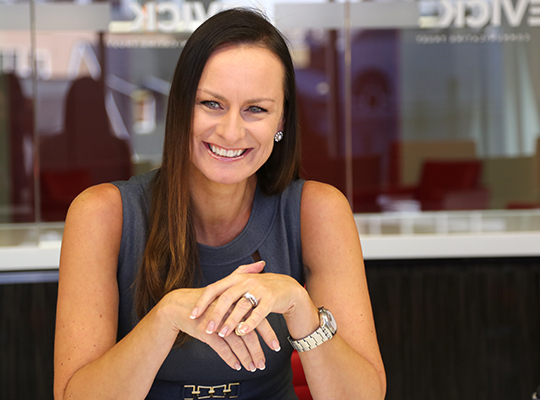Written by Sarah Searcy.
You never know when, why, or how a crisis will hit. But that doesn’t mean you can’t be prepared. In fact, good preparation is crucial—not only will good crisis communications save your organization money, it may save your organization, period.

Katherine McLane
But how do you prepare for the unexpected? Join WCA for lunch this Wednesday, January 20, to find out. Our guest speakers for this luncheon are both battle-tested experts who will share not only planning strategies, but also tactics to cope with, survive, and beat back the onslaught when the crisis inevitably arrives.
Katherine McLane creates crisis and strategic communications strategies for local, national, and international clients. She manages LEVICK’s Texas office. From 2007 to 2013, McLane was Vice President for Communications & External Affairs for the LIVESTRONG Foundation. She served as the organization’s chief communications and crisis management architect during years of global media attention surrounding its founder, successfully steering a course that kept the Foundation’s mission front and center.
Carrie Williams serves as Director of Media Relations for the Texas Department of State Health Services. Carrie has overseen the press response regarding the long-term storage of newborn bloodspots, the handling of H1N1 in 2009, and an unprecedented resurgence of West Nile virus in 2012. Most recently, she led the agency’s public information response to the country’s first case of Ebola.
We recently interviewed Katherine and Carrie about what they’ve learned about crisis communications over the course of their careers.

Carrie Williams
Who are the key people in a company or agency to involve in crisis communications planning?
Katherine McLane: This varies according to the organization, of course, but in general you need: 1) the decision makers; 2) the doers; and 3) the messengers. For example, in leading crisis communications planning at the LIVESTRONG Foundation, I pulled in the CEO and the COO so that if there were any operational elements to the conversation, I knew they’d be covered. Quite often, you’re best served having legal counsel in the room, too. They will frequently offer a differing opinion, but it’s best to get that hashed out in the planning phase and not when you’re in the trenches.
How extensive should a crisis communications plan be?
Katherine McLane: The short answer: as extensive as it needs to be, given the industry or organization. Some organizations go overboard in planning for eventualities, while others have no chute to pull at all. I counsel clients to create a thorough plan but also to build a standard operating procedure and chain of command that allows decisions to be made quickly in a crisis. That way, when the crisis doesn’t proceed according to plan, you’re covered.
Carrie Williams: The most useful part of having a communications plan is “doing” one. You learn by going through the motions and walking through scenarios. Rarely do I take out our thick plan in the midst of the crisis itself. Writing a plan prompts you to think through scenarios and ask yourself tough questions about how your agency will deal with a real crisis. It should be detailed and include actual names of people who will be on the frontlines, as well as the strategies you’ll use to quickly share information with the internal people on your team.
Given the thousands of media outlets in operation today, how do you keep track of how your agency or client is being covered in the media?
Carrie Williams: We have a three-person staff that handles all of the media inquiries for the agency, with about 50 to 70 inquiries per week. We log and track all of the inquiries and keep leadership informed about any major trends, surprises, hot topics, or of statewide or national significance. We do weekly analysis of our coverage and have one person—a self-proclaimed news junkie—whose part-time role is to track and collect our coverage and send out a recap of it every morning. As a state agency, we are not focused on promoting the agency itself, but rather certain public health programs and efforts. From a media standpoint, we are largely looking for topics that could generate scrutiny because they are controversial or unusual.
What is the most important thing you learned from the first crisis you were involved in managing?
Katherine McLane: Speed kills. Example: At an event, Governor Schwarzenegger, when asked about California’s border security, said we should work to close the border with Mexico. What he meant, of course, was that the border should be secured to minimize illegal immigration. As a new governor and non-native speaker, he didn’t appreciate that he was accidentally making a major international policy announcement that would send shock waves across our southern border. My boss, the fabulous Margita Thompson, the governor’s press secretary, sprinted over to the press riser saying “Secure! He meant secure!” She spoke to each reporter immediately and made sure to kill any story before it got off the ground.
What advice do you have or what is it important for communications professionals to remember in the midst of a crisis?
Carrie Williams: If there isn’t chaos, it’s not a crisis. You have to be okay with overreaction, uncertainty, and confusion. Always think three steps ahead and prepare to be second-guessed publicly. Do the right thing, and remember your core mission—that should never change. And, take care of yourself and your team—hydrate!
Katherine McLane: Stay calm. It’s so simple but so hard when the pressure is highest. If you’re freaking out, your leadership and your team will take that cue. If you’re calm and steady, they are more likely to be, too. Part of our job is to give people a plan and see them through it with as much grace as possible.
Ask for help if you need it. Sometimes we try to do way too much ourselves. In a crisis, this sets you up for failure. Things have to happen fast and if you’re holding up the show by multitasking rather than delegating, that’s a problem.
What are some common mistakes people make when communicating about a crisis?
Katherine McLane: They hold back. If you have bad stuff hitting the airwaves, go ahead and get it all out there as soon as you can. Don’t drag it out. Especially if it’s all going to come out in the end anyway.
They don’t apologize or they make the wrong apology. “We’re sorry if anyone took offense” translates to “Hey, how come everyone’s so sensitive?” The right apology is “We’re sincerely sorry and we’re making certain it never happens again.”
They wait. “Bob our chairman is on the golf course, so we can’t do anything until he finishes up the 18th hole.” Meanwhile, you’re getting killed in the press and you’re not offering a response.
They don’t build relationships before a crisis hits. “You don’t know us from Adam but would you be willing to say supportive things about how great we are despite the terrible press coverage we’re getting right now?”
Carrie Williams: Not having your A-game. Getting ahead of yourself. Take a deep breath and think through what you are about to do and say, and plan for the next questions/hours. It’s important to be fast, but not at the mercy of the quality of the response or information. Focus on being right rather than being first. Also, stay in your lane—ask yourself if this is your news to break or to comment on. Don’t swerve into other people’s problems.
Are crisis planning and crisis communications planning two distinct things, or is crisis communications planning an integral part of crisis planning?
Katherine McLane: In great organizations, they’re one and the same. Public perception is so important. Organizations that leave their communicators out of crisis planning usually end up paying for it. Or the communicators pay for it in blood, sweat, and tears when they’re trying to clean up the optics of a plan that ignores perception.
What do you do when your client or agency is at least partially responsible for the crisis?
Katherine McLane: Make sure you’re eye to eye with the lawyers because so often, they will be the ones telling your client not to say anything at all. We see all the time how that strategy can backfire in the long run.
Take appropriate responsibility swiftly. Apologize if necessary. Tell people what you’re doing about the crisis. Be responsive to press and the community. Bring in a crisis expert fast. Pick the right messenger—it’s not always the head honcho.
Carrie Williams: Own it. Take responsibility. Don’t duck and cover. First step is to gather all of the research and background about the issue. Make sure that anything that needs to be fixed now is fixed, and that changes are underway to prevent the problem from happening again. Next, figure out what you can say publicly and how you want to say it. The best course is to be as open as possible, acknowledge the error, and speak clearly about what actions are being taken. It’s best to work for people who have values that line up with yours—honesty, humility, and a willingness to learn from missteps. I can’t think of a more difficult scenario than having to work for a client or agency that is primarily interested in pointing fingers or getting away with something. Hold onto your values.
Is it important to plan for what to do after a crisis has subsided?
Katherine McLane: Strangely enough, you see lots of organizations that survive the crisis in good shape, only to blow it on turning the page. Just because you’re not in the headlines anymore doesn’t mean you’re out of the woods. Crisis recovery is just as important as surviving the gauntlet. Has the organization’s brand been damaged? Is its standing with lawmakers and policymakers diminished? Have shareholders lost confidence? There’s an art and science to recovering, and assessing your standing with stakeholders is the starting point.
Join WCA for lunch this Wednesday to learn more!
- Announcing Our 2016-2017 Board of Directors - May 31, 2016
- Freelance Corner: Making Impressions, Copyright FAQs and Nixing Procrastination - May 25, 2016
- Austin’s Best Kept Secrets: Swimming Holes - May 24, 2016

